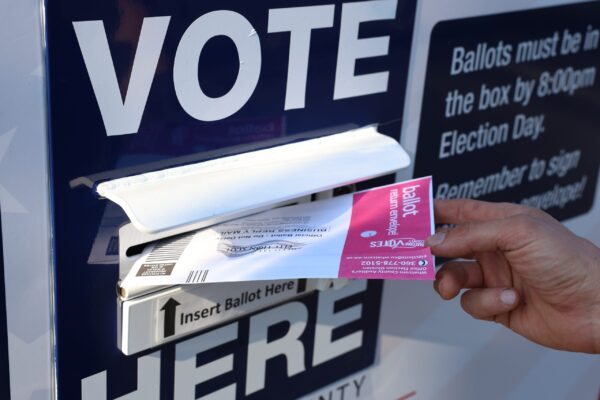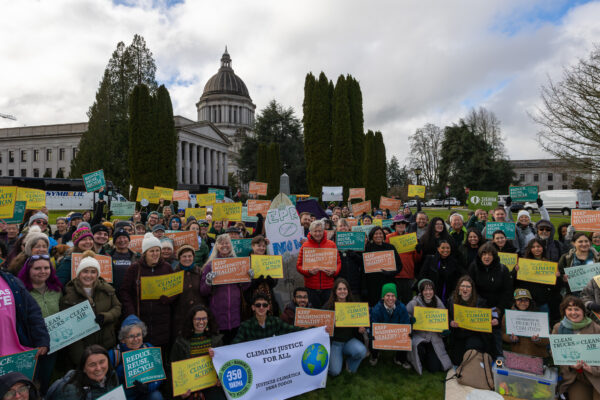Dear Director Watson,
The 15 undersigned conservation organizations strongly urge The Washington State Department of
Ecology (Ecology) to deny the 401 Water Quality Certification with prejudice for the Goldendale
Pumped Storage Project (Project) in light of Ecology’s issuance of the final Environmental Impact
Statement (EIS) which clearly indicates that the Project will result in “unavoidable and adverse impacts
to tribal cultural resources.”
Conclusions in the EIS show that Ecology has heard the concerns of the Confederated Bands and
Tribes of the Yakama Nation (Yakama Nation), which have been expressly voiced since the Project’s
introduction in 2018. In a press release issued on December 23, 2022 (attached), the Yakama Nation
states that the proposed site, also known as Juniper Point, or Pushpum, “is a place of extraordinary
significance to the Yakama People, including many historic and archaeological properties, cultural and
ceremonial importance, and sources of traditional food and medicinal roots.” The Project, if constructed,
would violate the Yakama Nation’s inherent sovereignty and rights reserved by the Treaty of 1855.
While some mitigation has been proposed by the applicant to address Project impacts to tribal cultural
resources, Ecology’s EIS clearly states that no proposed mitigation “would reduce the level of impact to
less than significant” and “there is no information available about mitigation proposed by or supported
by the Tribes.” The significant and unavoidable impacts, coupled with the lack of available mitigation,
should lead Ecology to deny the 401 Water Quality Certification for the Project.
In addition to the significant, adverse impacts to tribal cultural resources, the Project poses risks to
water resources in and around the Columbia River and will likely not comply with water quality
standards. First, the Project will permanently destroy large sections of two federal-jurisdictional
ephemeral streams, important habitat in the semi-arid Columbia Hills; the project will also destroy
multiple “waters of the state,” including ephemeral streams and a 0.3 acre pond. Second, the Project
will create two reservoirs that are likely to concentrate pollutants and potentially impact groundwater.
Third, the Project will consume large quantities of Columbia River water (2.5 billion gallons of water for
initial fill and 117 million gallons of water per year to offset water lost from evaporation and reservoir
leakage), exacerbating existing water quantity issues in the Columbia River. With this, Ecology retains
authority to deny Rye’s 401 certification. Further Project impacts to water quality and water quantity are
detailed in comments submitted to Ecology by American Rivers, Columbia Riverkeeper, Washington
Environmental Council, Sierra Club, and Friends of the White Salmon on September 30, 2022.
The developer has submitted a final license application for the Project, as well as its second 401 Water
Quality Certification application (the first was denied without prejudice in June 2021). Now with the
issuance of Ecology’s Final EIS, the determination of “unavoidable and adverse impacts to tribal
cultural resources,” and the likely impacts to water quality and quantity from Project construction and
operation, Ecology has more than enough information to deny the 401 application with prejudice.
Finally, the undersigned groups firmly support the need to address our climate crisis and transition
away from fossil fuels to cleaner and safer energy sources. This transition must uphold tribal
sovereignty and acknowledge the past harms caused by previous energy development. Project-specific
review and proper analysis of impacts are critical in ensuring that the state meets both its clean energy
goals and its environmental justice and tribal sovereignty requirements. The lack of mitigation
supported by the Yakama Nation, the Confederated Tribes of the Umatilla Indian Reservation, the
Confederated Bands of the Warm Springs Reservation, and the Nez Perce Tribe indicates that the
Goldendale Project stands to disproportionately harm Indigenous communities and should not proceed.
Further, the Affiliated Tribes of Northwest Indians (ATNI) passed Resolution #2023 – 15 in January
2023, which states, “the ATNI supports and stands with the Yakama Nation’s opposition to proposed
pump storage development at Pushpum and the permitting of development that threatens to destroy
Traditional Cultural Properties…” We stand with ATNI, and the above Tribes and Nations, in their
opposition of the Goldendale Project.
We urge you to deny the 401 Water Quality Certification for the Goldendale Pumped Storage Project
with prejudice and honor the sovereignty and treaty-reserved rights of the Yakama Nation.
Sincerely,
Rebecca Ponzio
Climate and Fossil Fuel Program Director
Washington Conservation Action
Sarah Dyrdahl
Northwest Regional Director
American Rivers
Sept Gernez
Acting Director
Washington State Chapter Sierra Club
Simone Anter
Staff Attorney
Columbia Riverkeeper
Patricia L. Arnold
Board Chair
Friends of the White Salmon River
Jean Mendoza
Executive Director
Friends of Toppenish Creek
Joseph Bogaard
Executive Director
Save Our Wild Salmon Coalition
Trish Rolfe
Executive Director
Center for Environmental Law & Policy
Riley Lynch
Climate and Health Program Manager
Washington Physicians for Social Responsibility
Jonah Sandford
Executive Director
Northwest Environmental Defense Center
Nic Nelson
Executive Director
Idaho Rivers United
Hannah Sol
Executive Director
Rogue Climate
David De La Torre
Healthy Climate Program Director
Oregon Physicians for Social Responsibility
Lilliane Ballesteros
Executive Director
Latino Community Fund
Thomas O’Keefe
Pacific Northwest Stewardship Director
American Whitewater



